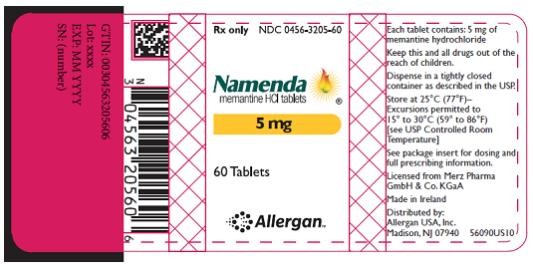
Contents
Side Effects of Namenda (memantine)
Namenda is an NMDA receptor antagonist used to treat moderate to severe dementia in Alzheimer’s disease.
Other Alzheimer’s medications affect acetylcholine, a neurotransmitter in the brain. They inhibit the enzyme acetylcholinesterase that destroys acetylcholine, thereby increasing its effects.
Namenda’s effects are independent of acetylcholine. It blocks the NMDA receptor and decreases the effects of glutamate, the main excitatory neurotransmitter in the brain. By doing so, Namenda may protect nerve cells from excess glutamate stimulation.
Common side effects of Namenda include:
Serious side effects of Namenda include:
- Stevens-Johnson syndrome (a serious skin reaction)
- Acute renal failure
- Cerebral infarction
- Cerebrovascular accident
- Deep venous thrombosis (DVT)
- Hepatitis
- Liver failure
- Intracranial hemorrhage
- Neuroleptic malignant syndrome
- Seizures
- Transient ischemic attack (TIA, mini-stroke)
Drug interactions of Namenda include medicines that make the urine more alkaline, which can increase the blood levels and the risk of side effects. Combining Namenda with other NMDA receptor antagonists should be done cautiously. Namenda has not been studied in pregnant women, and its excretion into breast milk is unknown. Consult your doctor before breastfeeding.
Important Side Effects of Namenda (memantine)
The most common side effects of Namenda are:
- Fatigue
- Pain
- Increased blood pressure
- Dizziness
- Headache
- Constipation
- Vomiting
- Back pain
- Confusion
- Sleepiness (somnolence)
- Hallucination
- Coughing
- Difficulty breathing
Namenda may cause Stevens-Johnson syndrome and other serious side effects including acute renal failure, cerebral infarction, cerebrovascular accident, deep venous thrombosis, hepatitis, liver failure, intracranial hemorrhage, neuroleptic malignant syndrome, seizures, and transient ischemic attack (TIA, mini-stroke).
Namenda Side Effects for Healthcare Professionals
Clinical Trials Experience
Namenda was evaluated in eight double-blind placebo-controlled trials involving 1862 dementia patients (Alzheimer’s disease, vascular dementia) for up to 28 weeks.
Adverse events leading to discontinuation were similar between the Namenda and placebo groups. The most common adverse reactions in Namenda-treated patients were:
| Adverse Reaction | Placebo | Namenda |
| Fatigue | 1 | 2 |
| Pain | 1 | 3 |
| Hypertension | 2 | 4 |
| Dizziness | 5 | 7 |
| Headache | 3 | 6 |
| Constipation | 3 | 5 |
| Vomiting | 2 | 3 |
| Back pain | 2 | 3 |
| Confusion | 5 | 6 |
| Somnolence | 2 | 3 |
| Hallucination | 2 | 3 |
| Coughing | 3 | 4 |
| Dyspnea | 1 | 2 |
Seizures occurred in a small percentage of patients treated with Namenda.
Postmarketing Experience
Post-approval use of memantine has reported additional adverse reactions, including agranulocytosis, leukopenia, pancytopenia, thrombocytopenia, thrombotic thrombocytopenic purpura, cardiac failure, pancreatitis, hepatitis, suicidal ideation, acute renal failure, and Stevens-Johnson syndrome.
Drug Interactions with Namenda (memantine)
Drugs That Make The Urine Alkaline
The clearance of memantine is reduced under alkaline urine conditions. Memantine should be used with caution in patients with altered urine pH.
Use With Other N-methyl-D-aspartate (NMDA) Antagonists
Combined use of Namenda with other NMDA antagonists should be approached with caution.
Summary
Namenda is an NMDA receptor antagonist used in the treatment of Alzheimer’s disease. Common side effects include fatigue, pain, increased blood pressure, dizziness, headache, constipation, vomiting, back pain, confusion, sleepiness, hallucinations, coughing, and difficulty breathing. Use during pregnancy and breastfeeding should be done under medical supervision.


